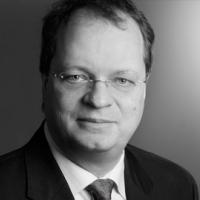Yale University Webinar on The Nuclear Power Endgame in Germany
- Presentation
- Date
-
13 October 2011, New Haven, CT, 12:00 noon; Berlin, Germany, 6:00 pm
- Location
- World Wide Web
- Lecture
On Thursday, 13 October 2011 the Yale Center for Environmental Law & Policy (YCELP), in partnership with the World Resources Institute (WRI) and the Environmental Defense Fund (EDF), presented R. Andreas Kraemer of Ecologic Institute in a web-based seminar on The Nuclear Phase-out and Green Power Shift in Germany. A recording of the presentation is now online available.
The Webinar was part of a series on "Climate Change Solutions: Frontline Perspectives from Around the Globe". This webinar series highlights the current state of climate change policy actions through speakers who provide unique insight into the latest policy developments in the world's highest greenhouse gas emitting countries.
In the second event of this series, R. Andreas Kraemer, Director of Ecologic Institute, Berlin, presented the German perspective through a discussion of Germany's nuclear power phase-out and its implications for climate policy. The presentation has been followed by a Q&A session with the audience.
Presentation Abstract
Germany may well be regarded as the nation where the endgame of nuclear power began. The conservative and pro-business German government proposed a law to switch off all nuclear power plants by the end of 2022. Polls indicate that 85 percent of Germans want nuclear power to be phased out within a decade. A clear technical and economic vision of a clean energy future, and a renewed determination for rational energy policies, fuel this demand.
Like other industrial nations, Germany was swept up in the 1950s by the illusion that nuclear power would be a safe source of energy and of peace and prosperity. But in the 1970s, local opposition to a planned reactor near the Swiss border first stopped construction and then became the nucleus for an increasingly knowledgeable and influential antinuclear movement.
The Chernobyl nuclear accident in 1986 again focused Germans on the need to invest in anything but nuclear. To this day, radioactive pollution levels from Chernobyl are such that wild berries, mushrooms and game from certain parts of Germany are not safe to eat.
Where would the United States be today if, 20 years ago, influential Republicans with small hydropower dams in the Rockies had a federal law that required utilities to buy hydroelectric power at predictable rates and to guarantee priority access to the power grid? The 1990 German Power Feed-in Law (Stromeinspeisegesetz) does just that. It has accelerated the shift to green energy in Germany.
Conservative forecasts suggest Germany will achieve 35 percent renewable power in its energy mix by 2020, 50 percent by 2030, and 80 percent by 2050.
The course of nuclear power in Germany appeared set in 2000 when the federal government negotiated a phase-out with the nuclear power industry. Since then, technologies and the industrial base for a great energy transformation have been put in place. Concerns about climate change have added urgency.
Today, the vision is of a smart power grid, fed by a mixture of large and small distributed renewable power plants, with electric cars providing grid-connected storage when parked, stabilizing the power grid.
Contrast this with the history of direct (and hidden) subsidies for the nuclear industry. Were all these taxpayer costs reflected in the price of nuclear power, not one plant would run.
What might be the international consequences of Germany ending nuclear power use? Other nations are also pulling back. Switzerland aims for a slow phase-out. Italy has ended nuclear illusions with a referendum. A similar outcome might be expected in Sweden. Japan also is reducing nuclear power.
Expect increased pressure to change the statutes of the International Atomic Energy Agency, or perhaps even a call to disband it. Without "civilian" use of nuclear technology to contend with, reform of the international Nuclear Non-Proliferation Treaty can be envisioned.
Political decisions made decades ago suggest this: Germany will lead the way on the nuclear endgame.



